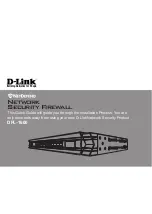
INS_CNGE20FX4TX16MS
04/30/18 PAGE 17
INSTALLATION AND OPERATION MANUAL
CNGE20FX4TX16MS
TECH SUPPORT: 1.888.678.9427
2.6. Installing and Removing SFP Modules
Up to two fiber optic ports are available (dependent on model) for use in the switch. Refer to the
technical specifications for details.
The Gigabit Ethernet ports on the switch are 100/1000Base SFP Fiber ports, which require using
the 100M or 1G mini-GBIC fiber transceivers to work properly. ComNet provides completed
transceiver models for different distance requirement.
The concept behind the LC port and cable is quite straight forward. Suppose that you are
connecting devices I and II; contrary to electrical signals, optical signals do not require a cir cuit in
order to transmit data. Consequently, one of the optical lines is used to transmit data from device
I to device II, and the other optical line is used transmit data from device II to device I, for full-
duplex transmission.
Remember to connect the Tx (transmit) port of device I to the Rx (receive) port of device II, and
the Rx (receive) port of device I to the Tx (transmit) port of device II. If you make your own cable,
we suggest labeling the two sides of the same line with the same letter (A-to-A and B-to-B, or
A1-to-A2 and B1-to-B2).
2.6.1 Installing SFP Modules
To connect the fiber transceiver and LC cable, use the following guidelines:
1. Remove the dust plug from the fiber optic slot chosen for the SFP transceiver.
Figure 2-3. Removing the Dust Plug from an SFP Slot
Do not remove the dust plug from the SFP slot if you are not installing the trans ceiver at this time.
The dust plug protects hardware from dust contamination.
2. Position the SFP transceiver with the handle on top, see the following figure.
3. Locate the triangular marking in the slot and align it with the bottom of the transceiver.
4. Insert the SFP transceiver into the slot until it clicks into place.
5. Make sure the module is seated correctly before sliding the module into the slot. A click sounds
when it is locked in place.
















































